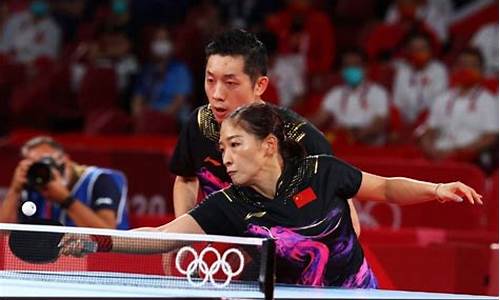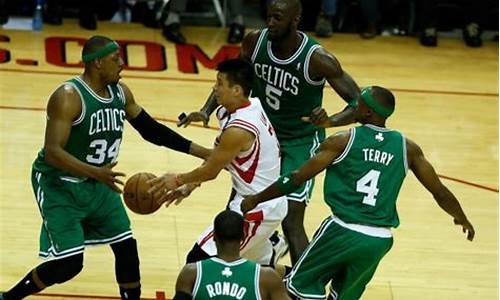奥运会的起源与发展简介英语,奥运会发展史英语版
1.现代奥运会起源 概要说明(英文,要简短)
2.奥运会的起源的英语翻译

History of the Olympic Games
Pindar, the Greek poet wrote in the 5th century BC:"As in the daytime there is no star in the sky warmer and brighter than the sun, likewise there is no competition greater than the Olympic Games.
According to historic records, the first ancient Olympic Games can be traced back to 776 BC. They were dedicated to the Olympian Gods and were staged on the ancient plains of Olympia. Initially they had a religious character and combined a number of ancient sporting events, many of which were based on ancient Greek myths.
The ancient Games actually occupied an important position in the life of the Greek ancestors. An Olympiad was a time unit, measuring the four-year interval between two Games. Participants came to compete from every corner of the Greek world aiming at the ultimate prize: an olive wreath and a "heroic" return to their city-states. But apart from the glorious victory, it was the Olympic values themselves which accorded special meaning to the Games: noble competition and the effort to combine body, will, and mind in a balanced whole.
As the Games developed, so did a set of procedures such as a standardized schedule of events and the practice of the Olympic Truce. They continued for nearly 12 centuries, until Emperor Theodosius decreed, in 393 AD, that all such 'pagan cults' be banned. He asserted that the Games placed an excessive public focus on athletic and spiritual affairs. The games was abolished until the 19th Century. Intellectuals such as Evangelos Zappas and Demetrios Vikelas who believed in the spirit of noble contests and the Olympic ideals, lent their voices and efforts to the revival of the Olympic Games.
However, it was French Baron Pierre de Coubertin who orchestrated the re-establishment of the Games, by advocating the marriage of sports and Greek classicism, leading the way to the first Modern Olympic Games in 1896.
The Greek public embraced the revival, and joined the efforts to organize the Games. Any financial difficulties faced by the Greek state at the time, were met through the mobilization of people and benefactors alike. The marble renovation of the ancient Panathinaikon Stadium that hosted the first modern Games was financed by George Averoff, a Greek benefactor from Northern Greece.
With the revival of the Olympic Games, a number of symbolic Olympic Traditions were also developed and established (i.e. the Olympic Anthem, the Olympic Creed, the Olympic Flag, the Olympic Flame and Torch).
Over the years, the Olympic Games traveled to different countries and continents, and now finally in 2004, they returned to the country of their birth and the city of their revival for the hosting of the XXVIII Modern Olympic Games.
公元前五世纪的希腊抒情诗人品达曾写道:“正如在白天天空中没有星星比太阳更温暖,更明亮,同样,没有比奥运会更激烈的比赛。
据历史记载,第一届古代奥运会可以追溯到公元前776年,为纪念奥林匹亚神在奥林匹亚的古代平原上举行。起初他们信仰宗教并综合了许多古代运动项目,其中很多都源于古希腊神话。
古代奥运会在古希腊人的生活中占据了很重要的地位。奥运会每四年举行一届,来自希腊各地的参赛者参与角逐,目标就是最终奖赏:一个橄榄花圈和“英雄”般的返乡。除去胜利的光荣,奥林匹克价值本身赋予了奥运会特殊的意义:高尚竞争,把身体、意志和精神平衡的结合于一体。
随着奥运会的发展,一系列程序,如标准化的项目时间表和奥林匹克休战的实践也在完善。这样持续了近 12个世纪,直到西奥多斯大帝在公元393年颁布法令,取缔所有“异教徒”。他宣称,奥运会使公众过于注意运动及精神。 18世纪,奥运会被废止。知识分子们,如塞帕斯和维克拉斯,坚信高尚比赛的精神和奥林匹克理想,为复兴奥运会而努力奔波。
法国人顾拜旦通过提倡运动和希腊古典主义的结合,使奥运会复兴起来,为1896年第一届现代奥运会的举行铺平了道路。
希腊民众迎接了奥运会的复兴,并努力组织起了这次奥运会。当时希腊政府所面临的资金难题,都被人民和捐助者所解决。举行第一届现代奥运会的古潘那斯那康体育场,其大理石更新便是由来自希腊北部的捐助者艾沃奥夫资助的。
随着奥运会的复兴,形成了很多具有象征意义的奥运会传统,如奥林匹克 会歌、奥林匹克格言、奥林匹克旗、奥林匹克火焰和火炬。
经过许多年,奥运会旅行了许多不同的大陆和国家,今年,也就是2004年,她回到了自己的出生地,回到了当年复兴的城市,举行第 28届现代奥运会。
现代奥运会起源 概要说明(英文,要简短)
追分80……楼主应该没这么大方吧
The Olynpic Games
The Olympic Games, first held in 776BC, has a history of more than one thousand yiars. The Games is held every four years.
Many countries try their best to bid forhosting the Olympic Games. And every country does its best to get more medals in the Games. In 2000, the city of Sidney held the 27th Olympic Games. Over one hundred countries all over the world took part in it. We won 28gold medals that year. China, a major sport country, will hold the 29th Olympic Games in 2008. People from all walks of life are participating in various activities and making good preparations for it.
There are five rings on the Olympic flag, which are considered to symbolize, the five continents: Europe, Asia, Africa, Australia and America. The Olympic motto is: "Swifter, higher, stronger." The Games can promote the understanding and friendship among different peoples and different nations.
奥林匹克运动会
公元前776年首次举办的奥运会,已经有一千多年的历史了。奥运会每四年举办一次。
许多国家尽他们最大的努力争办奥运会。每个国家在运动会中都争取拿更多的奖牌。2000年,悉尼举办了第27届奥运会,全世界100多个国家参加了这次盛会。那年我国获得了28枚金牌。中国作为一个体育大国,将于2008年举办第29届奥运会。各条战线的人们正在为奥运会做着各项准备。
奥运会的会旗上有五个环。五环被认为象征着五大洲:欧洲、亚洲、非洲、澳洲和美洲。奥运会的口号是:“更高,更快,更强。”奥运会能够促进各民族以及各个国家之间的理解和友谊
奥运会英文文章: international Olympic Committee constituted itself on 23rd June 1894.国际奥委会于1894年6月23日成立。
The Olympic symbol, the five interlocking rings, represents the union of the five continents and the meeting of the athletes of the world at the Olympic Games.奥林匹克的标志是五个相连的圆环,它代表着五大洲的团结和全世界运动员在奥运会上相聚一堂。
The official languages of the IOC are French and English.国际奥委会的官方语言是法语和英语。
The Olympic flame is a symbol reminiscent of the ancient Olympic Games.奥运圣火是人们缅怀古代奥运会的象征。
The Olympic Games consist of the Games of the Olympiad and the Olympic Winter Games. Both take place every four years.奥运会包括夏季奥运会和冬季奥运会,它们都是每四年举办一次。
The Olympic Games shall be proclaimed open by the Head of State of the host country.奥运会由东道国国家元首宣布开幕。
奥运会的起源的英语翻译
The ceremonial fire stems from the ancient Greece myth fable. Hands down ancient Greece god Prometheus for the humanity which rescues suffers hunger and cold, hides the truth from Zeus to steal the kindling material belt to the world. The ancient Greece before each Olympic Games are held, the people must light the ceremonial fire before the Hera temple. After the modern Olympic Games establish, when the ceremonial fire is lit that flash, this Olympic Games ceremonial fire's transmission was the announcement complete conclusion. Along with Olympic Games' conclusion, this Olympic Games ceremonial fire will also be extinguished. The first torch relay activity was Berlin Olympic Games starts from 1936
圣火起源于古希腊神话传说。相传古希腊神普罗米修斯为解救饥寒交迫的人类,瞒着宙斯偷取火种带到人间。古希腊在每届奥运会举行以前,人们都要在赫拉神庙前点燃圣火。现代奥运会创立后,当圣火被点燃的那一刹那,本届奥运会圣火的传递活动即宣告圆满结束。随着奥运会的结束,本届奥运会圣火也将被熄灭。第一次火炬接力活动是从1936年柏林奥运会开始的。
奥运会的起源中文:
有关古奥林匹克运动会的历史源头已经不可考,但是有些神话和传说流传下来。
珀罗普斯是奥林匹亚的国王,也是以他的名字命名的伯罗奔尼撒半岛的英雄。
奥林匹克运动会在举行时向他供奉。
基督徒亚历山太的革利免声称:“奥林匹克运动会只是供奉珀罗普斯的献祭活动”。
这个神话描述珀罗普斯如何在他的旧情人波塞冬的帮助之下,战胜Oenomaus国王,并和Oenomaus的女儿Hippodamia结成夫妇。
这个神话也和阿特柔斯家族的没落和俄狄浦斯的苦难经历有关连。
奥运会的起源英文:
The historical origin of the ancient Olympic Games can not be ascertained, but some myths and legends have been passed down.
Peropus was the king of Olympia and the hero of the Peloponnesian Peninsula named after him. The Olympic Games were held in honour of him. Christian Alexander's Clemens claimed that "the Olympic Games are only a sacrifice to Peropus".
This myth describes how Pelops, with the help of his old lover Poseidon, defeated King Oenomaus and married Hippodamia, Oenomaus's daughter. This myth is also related to the decline of the Atrus family and the suffering of Oedipus.
扩展资料:
奥运会标志:
奥林匹克运动会有一系列独特而鲜明的象征性标志,如奥林匹克标志、格言、奥运会会旗、会歌、会徽、奖牌、吉祥物等,这些标志有着丰富的文化含义,形象地体现了奥林匹克理想的价值取向和文化内涵。
奥林匹克五环标志,它由5个奥林匹克环套接组成,有蓝、黑、红、黄、绿5种颜色。
五环的含义是象征五大洲的团结以及全世界的运动员以公正、坦率的比赛和友好的精神在奥林匹克运动会上相见。
《奥林匹克 *** 》规定,奥林匹克标志、奥林匹克会旗、奥林匹克格言和奥林匹克会歌的产权属于国际奥委会专有。
国际奥委会可采取一切适当措施使奥林匹克标志、旗、格言和会歌在各国和国际上获得法律保护。
奥林匹克会旗于1913年由顾拜旦亲自设计,长3米,宽2米。
1914年为庆祝现代奥林匹克运动恢复20周年,在巴黎举行的奥林匹克代表大会上首次升起。
1920年安特卫普奥运会正式采用。
奥林匹克会旗上面是蓝黑红三环,下面是黄绿两环。
声明:本站所有文章资源内容,如无特殊说明或标注,均为采集网络资源。如若本站内容侵犯了原著者的合法权益,可联系本站删除。












